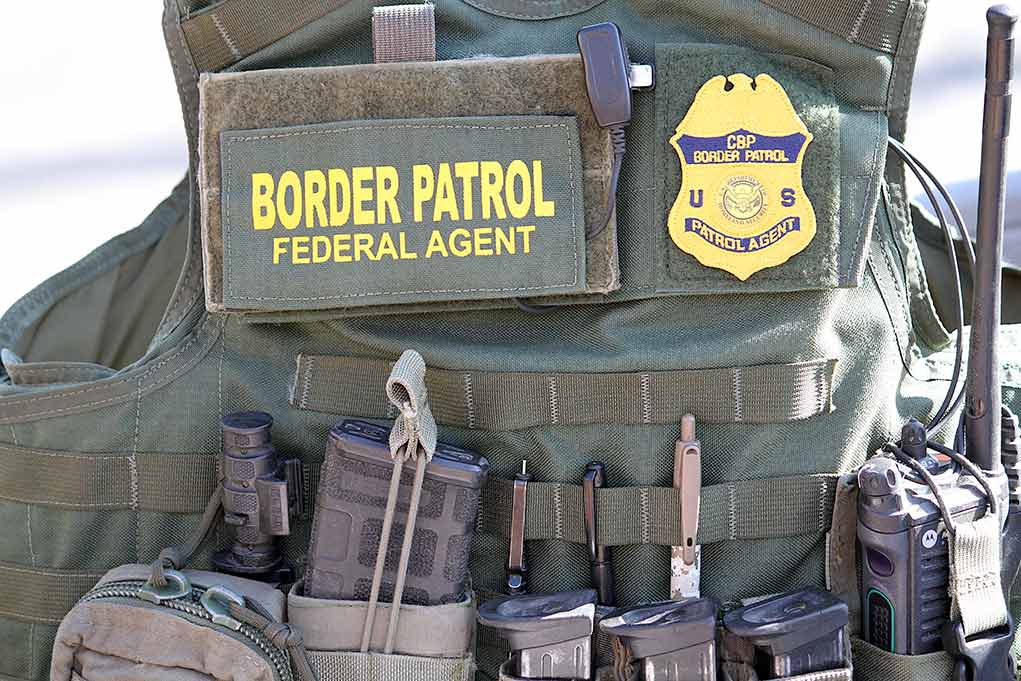
President Trump deploys elite Border Patrol tactical teams to Los Angeles as violent anti-ICE protesters assault federal agents and damage government vehicles, escalating the federal response beyond the 2,000 National Guard troops already mobilized.
Key Takeaways
- Specialized Border Patrol units including BORTAC, BORSTAR, and Mobile Response Teams are being deployed to Los Angeles to counter violent anti-ICE protests
- Unlike National Guard troops, these federal agents possess full federal arrest authority, enabling more effective law enforcement action against rioters
- ICE operations in Los Angeles resulted in 118 arrests of illegal immigrants with criminal backgrounds, triggering the violent protests
- President Trump criticized California Governor Gavin Newsom and LA Mayor Karen Bass for their inability to control the situation, prompting federal intervention
- DHS Secretary Kristi Noem and Border Patrol Chief Michael Banks have warned protesters that attacks on federal agents will result in arrests and federal prosecution
Elite Border Patrol Units Mobilize as Violence Escalates
The Trump administration has deployed specialized Border Patrol tactical teams to Los Angeles in response to escalating anti-ICE riots that have overwhelmed local law enforcement. These units include the Border Patrol Tactical Team (BORTAC), Border Patrol Search, Trauma, and Rescue unit (BORSTAR), and Mobile Response Teams (MRT). These highly trained agents will augment existing Border Patrol personnel and the 2,000 National Guard troops already committed to restoring order. The exact number of agents being deployed remains classified for operational security, but the contingent represents a significant escalation in federal response to what officials describe as organized violence against law enforcement.
The deployment follows days of increasingly violent confrontations where protesters surrounded federal buildings, attacked Border Patrol vehicles with rocks and concrete, and vandalized property with anti-ICE graffiti. Unlike the National Guard soldiers, these Border Patrol agents have full federal arrest authority, giving them greater capability to directly intervene against lawbreakers. This tactical advantage is crucial as local officials have been criticized for their hesitant response to the violence that erupted following ICE enforcement operations that resulted in 118 arrests, including gang members and individuals with serious criminal histories.
Reporter’s Vehicle Hit in Paramount Riots: @MattSeedorff Covers Chaos as Protesters Clash with Border Patrol!
Fox News LA reporter Matthew Seedorff found himself in the thick of escalating violence in Paramount, California, where his news vehicle was struck during intense riots… pic.twitter.com/j8W4glgSUY
— Off Topic Show (@OffTopicShow2) June 7, 2025
Trump Administration Takes Decisive Action
President Trump’s decision to deploy federal forces came after sharp criticism of state and local leadership’s handling of the situation. The administration characterized the unrest as lawlessness requiring immediate federal intervention, particularly after videos circulated showing Border Patrol vehicles being attacked and agents facing direct threats. The response reflects the administration’s zero-tolerance approach to attacks on federal law enforcement and its commitment to continuing immigration enforcement operations despite violent opposition.
“If Governor Gavin Newscum, of California, and Mayor Karen Bass, of Los Angeles, can’t do their jobs, which everyone knows they can’t, then the Federal Government will step in and solve the problem, RIOTS & LOOTERS, the way it should be solved!,” said President Donald Trump.
Governor Newsom has openly opposed the federal deployment, calling it inflammatory and unnecessary. This resistance highlights the ongoing tension between the Trump administration’s immigration enforcement priorities and California’s sanctuary policies. Despite this opposition, federal authorities are proceeding with the deployment, citing their responsibility to protect federal agents and enforce immigration laws. The Mobile Response Team, which has previously supported the U.S. Secret Service and trained foreign law enforcement, brings specialized experience in crowd control and rapid response to volatile situations.
Federal Authorities Warn Protesters of Serious Consequences
Federal officials have issued stern warnings to protesters considering violence against law enforcement. The FBI has launched investigations into attacks on Border Patrol vehicles and is actively seeking information on individuals involved in the violence. These federal investigations could lead to serious charges for participants in what began as protests against ICE operations at a Home Depot in Paramount, California, where tear gas was deployed during an alleged immigration raid.
“ANY attack on our agents or officers will not be tolerated. You will be arrested and federally prosecuted,” said U.S. Border Patrol Chief Michael W. Banks.
DHS Secretary Kristi Noem reinforced this message, stating that the riots would not impede ICE operations and that anyone who assaulted law enforcement would face the full extent of federal prosecution. This hard-line approach signals the administration’s determination to maintain immigration enforcement operations despite organized resistance. The Border Patrol’s experience with riot control, dating back to their response during the 1992 Los Angeles riots, gives them valuable institutional knowledge for addressing the current situation effectively.
“A message to the LA rioters: you will not stop us or slow us down, ICEgov will continue to enforce the law. And if you lay a hand on a law enforcement officer, you will be prosecuted to the fullest extent of the law,” said DHS Secretary Kristi Noem.
History of Border Patrol Special Operations
The deployment of these specialized Border Patrol units brings significant tactical capabilities to Los Angeles. BORTAC, often compared to military special forces, specializes in high-risk operations and has extensive training in riot control and urban operations. BORSTAR, while primarily focused on search and rescue, brings additional tactical capabilities and medical expertise. The Mobile Response Teams are specifically designed for rapid deployment to regional and national incidents requiring federal intervention. Together, these units represent some of the most highly trained federal law enforcement personnel available for deployment during civil unrest.
With agents potentially drawn from Border Patrol sectors including San Diego, Tucson, El Paso, and others across the country, this operation represents a nationwide commitment of resources to address what the administration views as a direct challenge to federal authority and immigration enforcement. The presence of these tactical teams, with their specialized training and federal arrest powers, marks a significant escalation in the government’s response to anti-ICE protests and signals a determination to continue immigration enforcement operations regardless of resistance.











